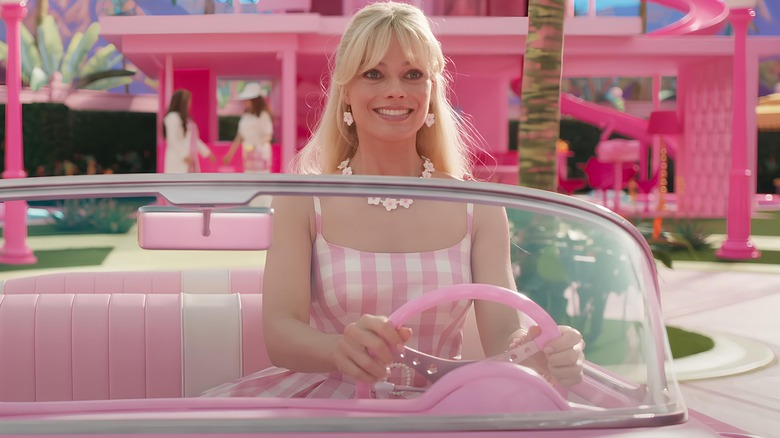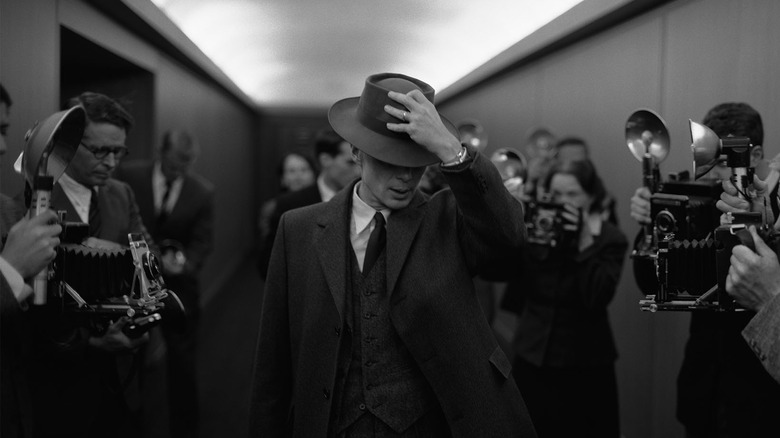Warner Bros. Apologizes After Barbenheimer Posts Cause Offense In Japan
While the "Barbenheimer" phenomenon has mutually benefited "Barbie" and "Oppenheimer" on the whole, Japanese Twitter users began proliferating the hashtag #NoBarbenheimer in late July of 2023, a little over a week after both movies premiered in the United States. Prompting this was the verified account for the "Barbie" movie replying to "Barbenheimer" posts that critics argued incorporated mushroom cloud imagery without respecting the seriousness of the real-life atomic bombings of Hiroshima and Nagasaki. In response, "Barbie" distributor Warner Bros. publicly apologized per the urging of its counterpart in Japan.
"Warner Brothers regrets its recent insensitive social media engagement. The studio offers a sincere apology," a representative for the company wrote in a statement to Variety.
Prior to the Warner Bros. U.S. headquarters' apology, Warner Bros. Japan circulated a formal statement through the Japanese-language "Barbie" Twitter account both validating the feelings of those using the #NoBarbenheimer hashtag and calling on the U.S. branch of the company to publicly address the issue. Warner Bros. then issued its official statement just under 24 hours later.
Here's why Japanese Twitter users began posting #NoBarbenheimer
Among the numerous Twitter users who shared the hashtag #NoBarbenheimer is professional wrestler Hyper Misao, who wrote, "I was looking forward to the release of the movie 'Barbie' but unless there is an official explanation for this, it will be difficult to go see it." In a follow-up Tweet she clarified that she doesn't hold director Greta Gerwig or star Margot Robbie accountable before including two notable screenshots of the "Barbie" Twitter account replying in an upbeat manner to fans' "Barnbenheimer" memes that incorporate images of mushroom clouds for attempted comedic effect.
Another Japanese Twitter user with the handle @h00atmr posted an English webcomic meant to explain the precise context for this controversy. According to their characterization, plenty of Japanese moviegoers were looking forward to both "Barbie" and "Oppenheimer" at first, and only started to take issue with the "Barbenheimer" trend when images of mushroom clouds began appearing in meme posts, and particularly after the "Barbie" account acknowledged some of them.
Educator Jeffrey J. Hall further explained the seriousness of the situation in a Tweet accompanying a news broadcast of a yearly memorial event in Hiroshima. "The #NoBarbenheimer controversy is a reminder of the perception gap between Japan and the US over the issue of nuclear weapons," he wrote. "Japanese grow up learning about the horrors of the a-bombs and every year's memorial ceremonies are treated as national news." These sorts of sentiments, then, are what led Warner Bros. to publicly apologize.

